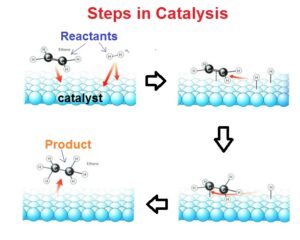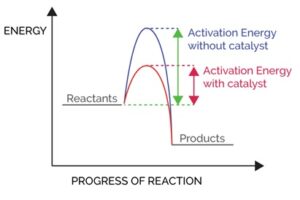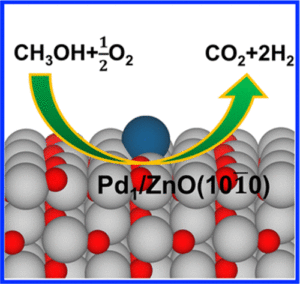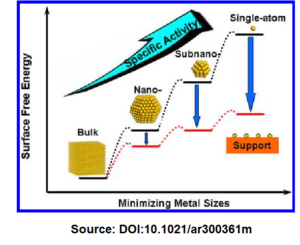National Science
Foundation Grant
For students interested in pursuing graduate studies in the Physical Sciences field, a unique opportunity exists at Brewton-Parker to take part in a summer research program in Nanoscience. Prof. Hong of Brewton-Parker College and Profs. Rahman and Liu of the University of Central Florida (UCF in Orlando, FL) are supported by a National Science Foundation award of $752,532 from the Chemical Catalysis Program in the Division of Chemistry to understand and predict the properties of single-atom catalysts.
Recent Update
Chance Hatcher, BPC Biology Major, participated in the summer research program in 2021.
His work has been published in a peer-reviewed journal, Catalysis Today.
The National Science Foundation (NSF)(www.nsf.gov) is an independent federal agency created by Congress in 1950. NSF has an annual budget of $8.3 billion (FY 2020) to fund 12,000 new grants per year for basic research conducted at U.S. colleges and universities.
Prof. Hong of Brewton-Parker College and Profs. Rahman and Liu of the University of Central Florida (UCF in Orlando, FL) are supported by a NSF award ($752,532; September 1, 2020 – August 31, 2023) from the Chemical Catalysis program in the Division of Chemistry to understand and predict the properties of single atom catalysts.
In this project, Prof. Hong and his colleagues will carry out joint computational and experimental studies of oxidizing (burning in a controlled way) methanol to form carbon dioxide and molecular hydrogen on singly-dispersed platinum, copper, and cobalt nanoparticle catalysts.
Catalysts are used in industry to speed up chemical reactions while selecting for specific products over others. Catalysts are often made of nanoparticles (nano is a billionth of a meter) because nanoparticles have unique properties that distinguish them from macro-scale bulk catalysts because of their reduced size and quantum confinement. For example, bulk gold is chemically inert but gold nanoparticles are very reactive with gases in the air (like carbon monoxide). The minuscule size of the nanoparticles also means reduced cost of precious metals. Prof. Hong and his colleagues aim to unravel the factors that control reactivity and product selectivity of nano-catalysts in the NSF funded projects.




Student Opportunities
The NSF grant started in September 2020 and lasts until 2023. Each summer two or more BPC students will have the opportunity to participate in an NSF-funded undergraduate research program. Students will work in Prof. Liu’s laboratory at UCF in Orlando, FL participating in preparation and measurements of nanoparticle samples. UCF is the second-largest university in the nation in terms of enrollment and is a very active research university. For example, UCF CREOL is a nationally recognized optics research institute. This program will provide BPC students a laboratory internship opportunity in a major research university. Furthermore, they will participate in the state of the art nanotechnology research and gain useful experience for careers in academics or industry. This program will be particularly useful for those who plan to attend graduate schools or desire to have a career in biotech companies.
To apply, contact Prof. Hong at shong@bpc.edu or 912-583-3148.
*Students who have strong academic records in Chemistry and Physics (at least B or higher in General Chemistry or General Physics) are encouraged to apply.*

